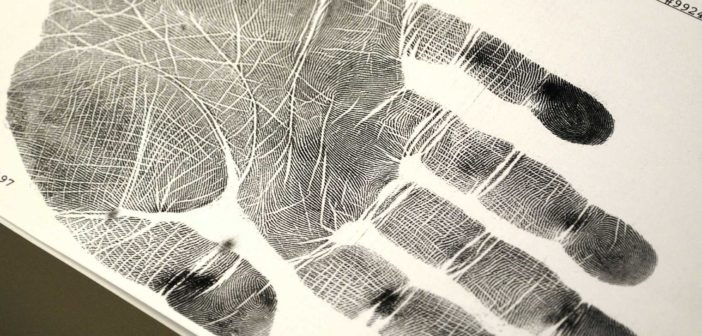Researchers from the University of Surrey have developed a novel fingerprint drug test that is a remarkable for 2 reasons: it accurately detects metabolites of cocaine within seconds, and positively identifies the user at the same time.
If the test becomes widely adopted in the near future for cocaine as well as other ilicit drugs, it will likely make traditional drug testing using urine, blood or saliva obsolete.
The groundbreaking research was published yesterday in the Journal, Clinical Chemistry.
The researchers, collaborating with the Netherlands Forensic Institute and Intelligent Fingerprinting, used a special technique known as paper spray mass spectrometry to analyze the fingerprints.
The study set-up involved taking the specialized fingerprints from persons who were in treatment at drug rehabilitation facilities, as well as a control group of non-drug users. The subjects also followed a protocol to wash their hands before their fingerprints were taken on the special paper. As part of the process, the specific chemicals utilized also created a unique fingerprint of the subjects, as the ridges of the fingerprint were linked to the identity of the donor.
Cocaine users excrete trace amounts of the compounds, benzoylecgonine and methylecgonine, as they metabolize cocaine, with the chemicals present in their fingerprint residue. What’s even more remarkable is that the fingerprint metabolites can even be detected after handwashing, making the test even more sensitive and specific.
The researchers compared the results of their fingerprint assay against the more commonly used saliva test to see if there was agreement between them. Prior drug testing methods using fingerprints have only been able to demonstrate that a person had touched the substance, but not whether they had actually used the drug.
Data from the National Statistics Office from 2015-2016 indicate that 1 in 12 adults aged 16-59 (nearly 2.7 million) used ilicit drugs. In fact, over 8,500 persons were admitted to hospitals during this period with drug-related mental health and behavioral disorders. Equally concerning is that in 2015, over 2,500 persons died as a result of misuse of prescription drugs, a 10 percent increase over 2014 data.
“Paper mass spray spectrophotometry is gaining increasing popularity in forensic circles because it is incredibly sensitive and is very easy to set up a testing system-the units will save laboratory time,” explained Dr. Catia Costa, one of the co-study authors. “This is the first time it has ever been used to detect the presence of drugs in fingerprints, and our results show the technique was 99% effective in detecting cocaine use among the patients.”
The possibility of having such a rapid, reliable and non-invasive test as a “go-to” for drug testing is a significant advance over current methods requiring bodily fluids (urine, saliva, blood), which run the risk of not only adulteration and contamination, but the biohazard risk to the person processing the specimen itself.
“ This is a real breakthrough in our work to bring a real-time, non-invasive drug testing method to the market that will provide a definitive result in a matter of minutes—we are already working on a 30-second method,” offered Dr. Melanie Bailey, the lead study author. “And, as with previous methods we have developed, it is non-invasive, hygienic, and can’t be faked-by the nature of the test, the identity of the subject, and their drug use, is all captured within the sample itself.”
Certainly, the implications and applications of such a rapid and non-invasive test are broad to say the least . As law enforcement, courts, and probation services utilize drug testing routinely, the possibility of such a test could revolutionize the field. This would clearly eliminate the routine need for blood collection by trained staff, as well as privacy concerns that are inherent with urine drug testing. The biological hazards associated with testing bodily fluids, along with specific storage and disposal methods would be eliminated, as well as the need for off-site testing, as is typically the case.
The promise of a rapid, point-of-care, portable fingerprint drug test for law enforcement, substance abuse monitoring, hospitals, along with other sectors of the economy (transportation sector) could have far reaching implications as a disruptive technology.
“This exciting research clearly demonstrates the important role that fingerprints can play in simplifying drug screening, and complements our own parallel developments in portable, point-of-care diagnostic tests. These activities confirm the value of a fingerprint as a diagnostic matrix,” said Dr. Jerry Walker, CEO of Intelligent Fingerprinting.
Source: Forbes




